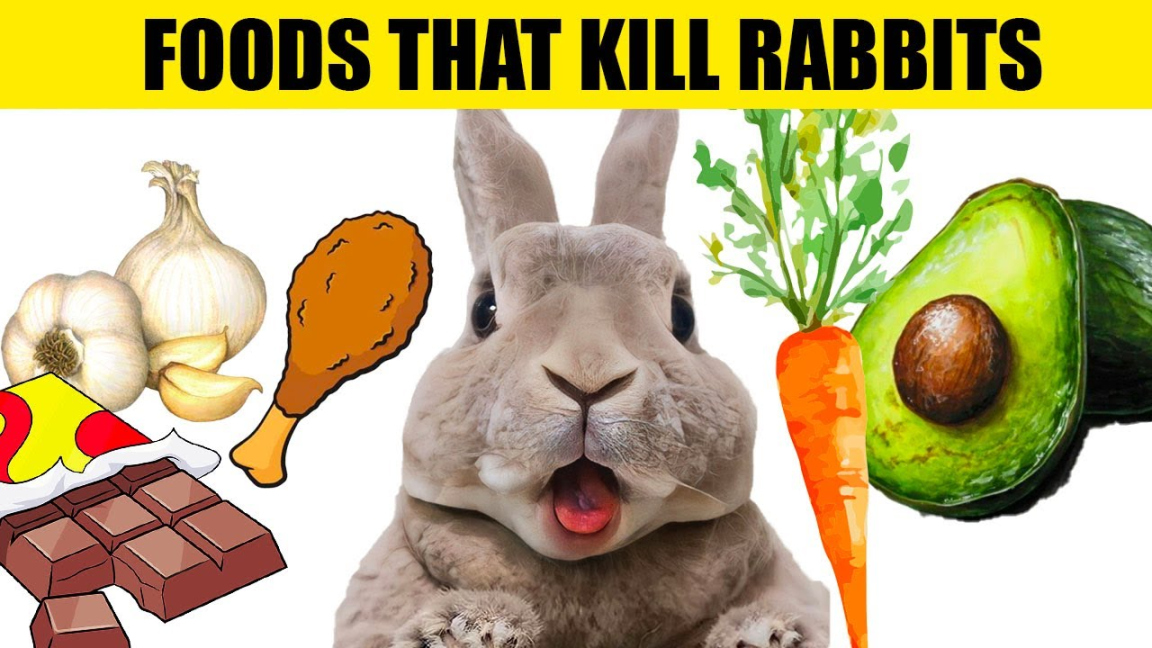What Would Kill a Rabbit But Not Eat It?
When it comes to the animal kingdom, predators play a crucial role in maintaining the delicate balance of nature. However, sometimes we encounter puzzling situations where an animal is killed but not eaten. One such case is the curious scenario of rabbits being killed without being consumed. In this article, we will delve into this intriguing phenomenon and explore possible explanations for what could kill a rabbit but not eat it.

1. Predators with specific hunting behaviors
One possible explanation for rabbits being killed but not eaten is the presence of predators with specific hunting behaviors. Some animals, such as domestic cats, have instinctual hunting behaviors that involve pursuing and capturing prey, even if they are not hungry. Domestic cats, for instance, may display this behavior as a result of their natural instincts.
Additionally, certain predators may engage in territorial behavior. If a rabbit happens to enter the territory of a predator, such as a fox or a coyote, they may be attacked and killed as a means of protecting their territory, rather than for food.
2. Predators with strong hunting instincts
Another possible explanation for rabbits being killed but not eaten is the presence of predators with strong hunting instincts. Animals like dogs or even larger predators like wolves may exhibit this behavior due to their inherent hunting instincts. The thrill of the chase, capture, and killing may be enough to satisfy their predatory instincts, even if they do not consume the rabbit afterward.
Moreover, predatory animals may sometimes be inexperienced hunters or young individuals who have not yet fully developed their hunting skills. In such cases, the rabbits may be killed but not eaten simply due to the predator’s lack of expertise in successfully consuming their prey.
3. Prey mistaken for a threat
In rare instances, a rabbit may be killed but not eaten when it is mistaken for a threat by another animal. This can occur when the predator perceives the rabbit as a potential danger to their own survival or the survival of their young. In these cases, the predator may eliminate the perceived threat by killing the rabbit, even though it is not a part of their regular diet.
4. Disease or infection
Another reason for the death of a rabbit without consumption could be disease or infection. Some diseases can cause animals to exhibit abnormal behavior, including attacking other animals without consuming them. For example, rabbits affected by the highly contagious rabbit hemorrhagic disease may exhibit aggressive behavior towards other rabbits, leading to their death.
5. Lack of hunger
Sometimes, predators may kill a rabbit but not eat it simply because they are not hungry. This can happen when a predator has recently fed or when food resources are abundant in their habitat. In these cases, the predator may feel no immediate need to consume the rabbit and may leave it untouched.
Frequently Asked Questions (FAQs)
Why would a predator kill a rabbit but not eat it?
Predators may kill a rabbit but not eat it due to various reasons, such as specific hunting behaviors, strong hunting instincts, mistaking the rabbit for a threat, disease or infection, or lack of hunger.
What animals are known to kill rabbits but not eat them?
Animals such as domestic cats, dogs, wolves, foxes, and coyotes are known to kill rabbits without consuming them.
Can rabbits defend themselves against predators?
Rabbits often rely on their agility and speed to evade predators. They can also use their powerful hind legs to kick and escape from potential threats.
What should I do if I find a rabbit killed by a predator in my backyard?
If you find a rabbit killed by a predator in your backyard, it is best to dispose of the carcass to avoid attracting other predators. Use gloves and proper sanitary measures when handling the carcass.
In conclusion, the killing of rabbits without consumption can be attributed to various factors such as specific hunting behaviors, strong hunting instincts, mistaking the rabbit for a threat, disease or infection, or lack of hunger. Understanding these possible explanations provides us with valuable insights into the complex interactions between predators and their prey in the animal kingdom.
Related Articles…
Copyright Notice:
This website utilizes images found online, all copyrights are retained by their original owners. If you would like an image removed, kindly contact us.